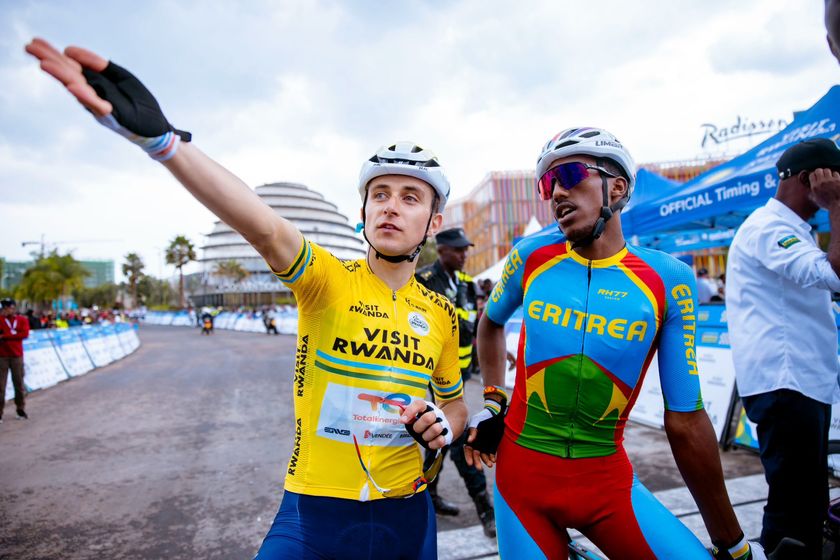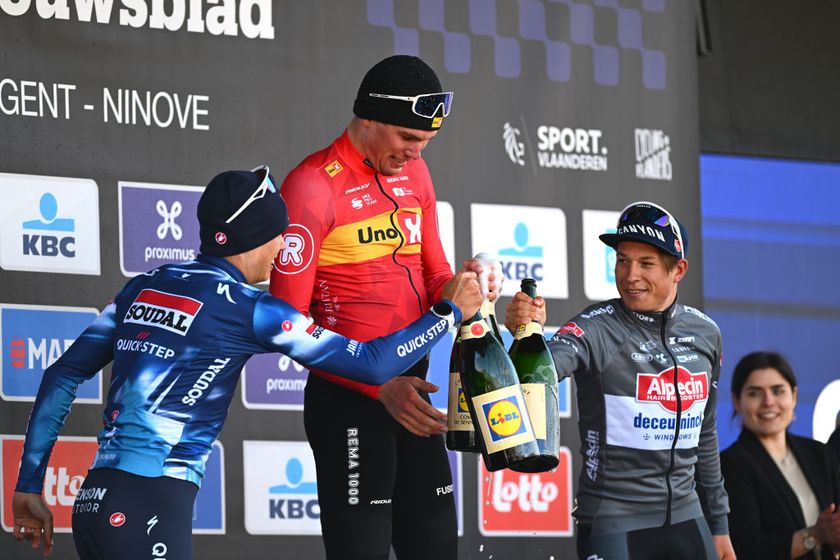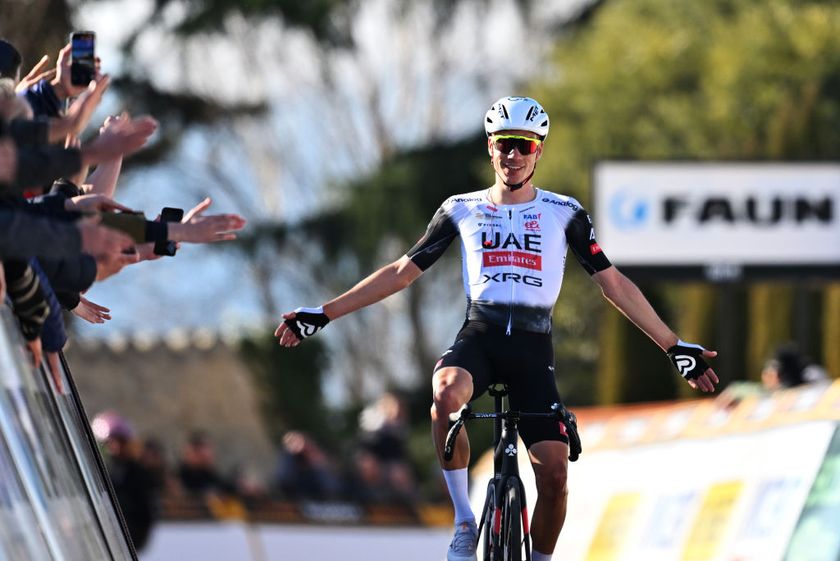Gaimon praises Beijing organisers for shortening stage 2
Logistical headaches and dangerous air pollution feature in WorldTour race



The shortening of stage 2 at the Tour of Beijing was welcomed by Phillip Gaimon (Garmin-Sharp) after race organisers and teams reached a compromise over the dangerous levels of air pollution. The final 36 kilometres of the stage were cut with the finish line moved to the top of a third category climb.
Philippe Gilbert (BMC Racing) won the stage and moved into the race lead but the day was overshadowed by discussions over the safety of the riders at the race.
“Looking at the charts and measurements that I'd never researched before, the air quality was definitely dangerous by any standard we could find,” Gaimon told Cyclingnews.
“They decided that if the count was over 300 AQI at the finish line, they would shorten the stage, but I think anything over 100 and it's considered unsafe to exercise in the United States,” Gaimon told Cyclingnews.
“I don't know of any riders who would have preferred to race, but they shortened the stage to avoid the worst area, which was a good compromise. Of course the race has gone through a lot of expense and trouble to organize it, so it's costly if the race doesn't take place. It was sad to drive past all the crowds who came out to watch us race.”
“The visibility was fine on the road, and you don't really feel pollution when you breathe it, so the actual racing felt safe to me. I do have a headache.”
Discussions are ongoing with regards to the rest of the race with organisers and teams monitoring the situation.
Get The Leadout Newsletter
The latest race content, interviews, features, reviews and expert buying guides, direct to your inbox!
“There's a rumour that they'll stick with the same rule that we don't race if it's over 300 but the levels should improve over the next couple days. I don't think 285 or even 150 is necessarily safe, but it's nice that there's a measurable number instead of a subjective judgement. Usually there's just some official that says "it's fine," but that thankfully isn't the case here. I suspect we'll race the next two stages, and the final day will be shortened.”
Gaimon believes that the responsibility over rider health ultimately lies with the teams and not the race organisers.
“I think if the race fails to secure our safety, it's up to the teams to ensure the health of their employees. Regardless of right and wrong, there are guys here making seven figures a year. It would be dumb for teams to risk that investment.”
The air conditions have not been the only issue the riders have had to face so far. When the peloton arrived en masse in Beijing earlier this week they were delayed for several hours due to a logistical issue surrounding customs protocol.
“I'm sure I don't understand it completely, but after a long flight and a two hour wait at the airport, about 30 riders piled into a bus, drove two hours, and found ourselves back at the airport, where we sat in the parking lot for a few more hours,” Gaimon said.
“Apparently there's a refundable customs deposit that needs to be paid for the bikes on arrival, and it wasn't clear if the race was supposed to pay, or the teams. I think it took nine hours to get to the hotel from the airport.
“It's odd because the race is off for next year, so we can feel like the problem over the pollution is solved (or moot), but here we are. Dan Martin went from winning Lombardi to eating KFC in a parking lot at the airport in Beijing.”
Daniel Benson was the Editor in Chief at Cyclingnews.com between 2008 and 2022. Based in the UK, he joined the Cyclingnews team in 2008 as the site's first UK-based Managing Editor. In that time, he reported on over a dozen editions of the Tour de France, several World Championships, the Tour Down Under, Spring Classics, and the London 2012 Olympic Games. With the help of the excellent editorial team, he ran the coverage on Cyclingnews and has interviewed leading figures in the sport including UCI Presidents and Tour de France winners.
Most Popular







